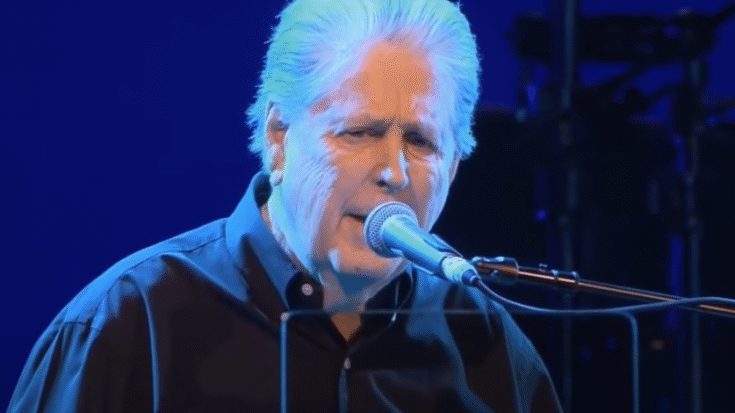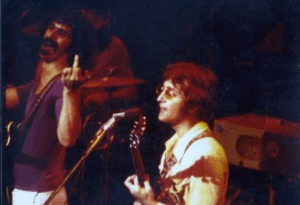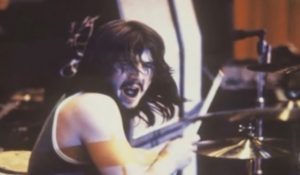How Brian Wilson’s Influence Made Legendary Music Careers Possible

via Yann Fernandes / YouTube
Brian Wilson’s music wasn’t just a product of its time—it was a redefinition of it. He took the simplicity of surf rock and transformed it into something far more ambitious, weaving complex emotions into melodies that still sound effortlessly breezy. Behind the harmonies and sun-soaked imagery was a mind both tormented and brilliant, turning private battles into some of the most beautiful songs ever pressed to vinyl.
His perspective was always slightly off-center, and that’s what made it revolutionary. While others in his generation chased trends or chased fame, Wilson was building sonic worlds where joy and melancholy could coexist. He wasn’t just writing about youth—he was dissecting its highs and lows, its tenderness and terror, all within the framework of pop. Each Beach Boys song felt like a postcard from the edge of the American dream, sent by someone who knew it was starting to fade.
More than just a master of melody, Wilson became a beacon for artists looking to break past formulas. His influence stretches far beyond the California coast, touching musicians who found in his work a roadmap for emotional honesty and musical daring. The careers he shaped didn’t just borrow from his style—they borrowed his courage to dig deeper.
Richard Ashcroft (The Verve)
Richard Ashcroft’s signature song, “Bitter Sweet Symphony,” could double as a metaphor for Brian Wilson’s own musical journey—aching beauty wrapped in melancholy. With Urban Hymns, Ashcroft positioned The Verve at the intersection of Britpop grandeur and introspective psychedelia. There’s a spiritual longing in his best songs that mirrors Wilson’s own tendency to soundtrack sadness with sunshine.
Tracks like “The Drugs Don’t Work” and “Space and Time” echo The Beach Boys in more than just title—they’re built around swelling arrangements and emotional vulnerability. Ashcroft’s vocal layering on “Love Is Noise” is pure Wilson worship: harmonies rising into something cosmic, even chaotic. You can almost hear the ghosts of Pet Sounds humming beneath the surface.
That admiration became tangible when Ashcroft collaborated with Wilson on “Nature Is the Law”, a highlight from his solo record Human Conditions. The song is a hushed and holy meeting of minds, with Ashcroft’s dreamlike lyrics folding gently into Wilson’s melodic world. In both men’s work, there’s a yearning to make sense of the human condition through sound.
View this post on Instagram
John Frusciante (Red Hot Chili Peppers)
California has birthed its share of music legends, but few carry its contradictions like Brian Wilson and John Frusciante. Where Wilson crafted layered odes to the golden coast from a place of internal exile, Frusciante poured chaos and clarity into the Red Hot Chili Peppers’ most enduring records. Both artists turned personal ruin into sonic beauty.
Though best known for his guitar work, Frusciante’s falsetto harmonies became central to the Chili Peppers’ identity. Songs like “Under the Bridge” and “Scar Tissue” carry a melodic sensitivity that owes something to Wilson’s gift for expressing ache through softness. And much like Wilson’s orchestrations, Frusciante’s contributions are often the secret ingredient—heard more than seen.
Their paths differ wildly, yet both men retreated from fame at their peak, battled demons, and reemerged with new purpose. In Frusciante’s solo work, you can feel the same push toward experimentation, self-reflection, and sound-as-salvation that fueled Wilson’s most ambitious projects. The Beach Boys may have defined California’s dreamscape, but Frusciante helped sketch its grittier underside.
View this post on Instagram
Mike Mills (R.E.M.)
R.E.M. sounded like no one else—yet listen closely, and you’ll find the DNA of Brian Wilson in their bones. Mike Mills, the band’s bassist and secret vocal weapon, was often the one lifting R.E.M.’s songs into unexpected places. While frontman Michael Stipe wrestled with lyrical abstraction, Mills provided melody, balance, and a touch of Wilsonian wonder.
The band’s layered vocals, especially when Mills and Stipe intertwine, recall the Beach Boys’ blend of tension and release. “It’s the End of the World As We Know It (And I Feel Fine)” might be R.E.M.’s great moment of joyful apocalypse—driven in part by the contrast between Stipe’s delivery and Mills’s echoing lines. It’s pop music with deeper shadows.
Wilson’s influence on R.E.M. wasn’t about mimicry—it was about structure, harmony, and how to inject emotion into every note. Mills, like Wilson, knew how to take a simple song and give it legs to run. From Out of Time to Automatic for the People, the band’s best work rests on a similar idea: that complexity can still feel effortless.
View this post on Instagram
Paul McCartney (The Beatles)
Brian Wilson and Paul McCartney didn’t just admire each other—they engaged in a kind of musical arms race. When Wilson heard Rubber Soul, it pushed him to create Pet Sounds. In turn, McCartney called “God Only Knows” the greatest song ever written and responded with “Here, There And Everywhere”. It was mutual inspiration on a historic scale.
These weren’t just two songwriters trading ideas—they were redefining what albums could be. Wilson’s shift from surf tunes to introspective symphonies opened the door for Revolver and eventually Sgt. Pepper’s Lonely Hearts Club Band. Pet Sounds made vulnerability sound lush; the Beatles took that cue and made psychedelia feel personal.
Although Wilson was derailed before he could complete Smile, his influence on The Beatles’ peak is undeniable. McCartney’s melodic instincts were sharpened by hearing what Wilson could do with a four-track studio and a full orchestra. Their rivalry never felt bitter—just an ongoing conversation between two of pop’s greatest minds.
View this post on Instagram











